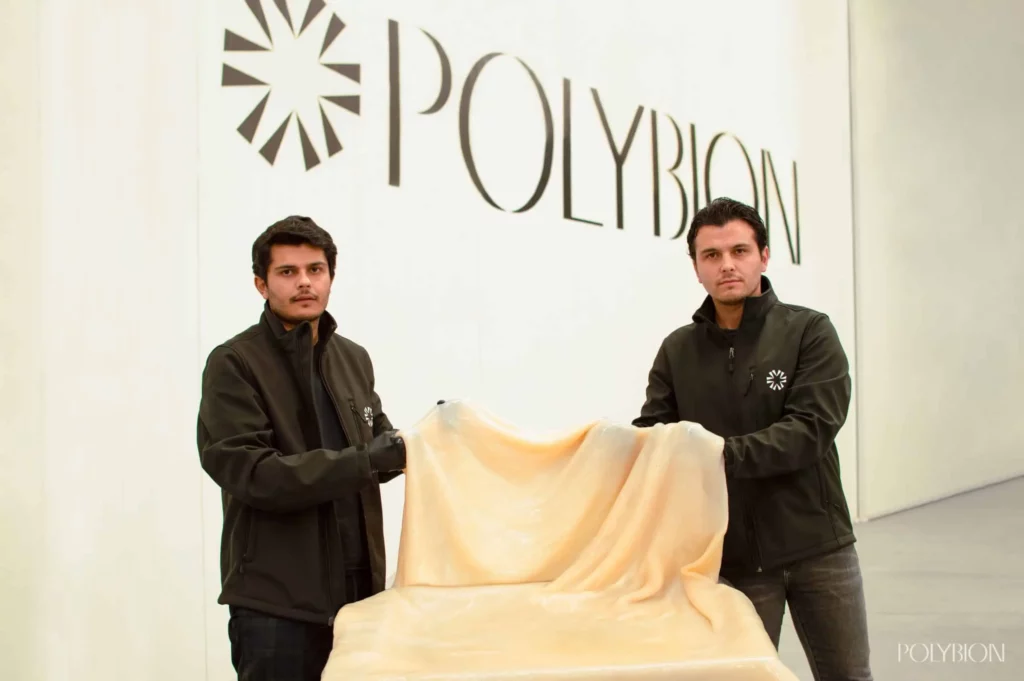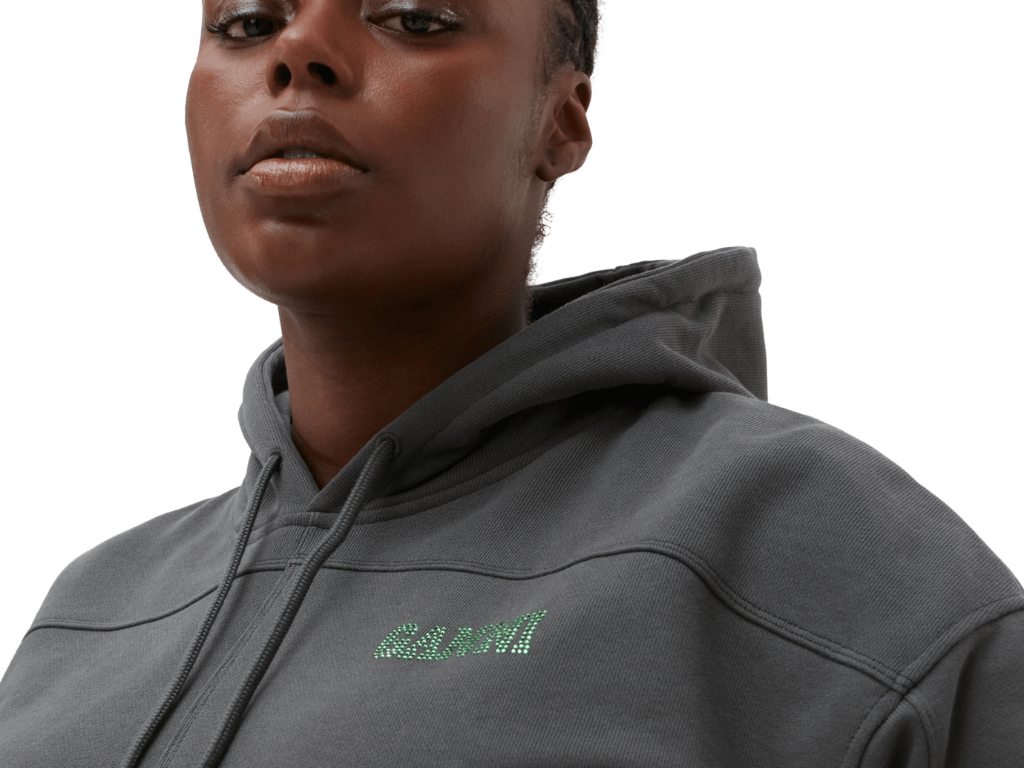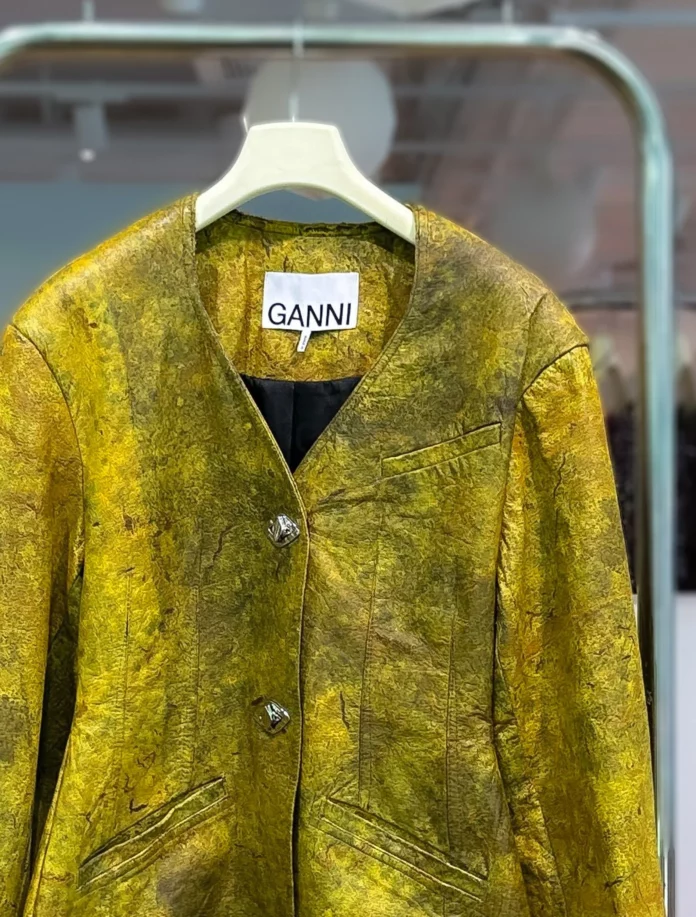Danish luxury label Ganni has partnered with Mexican materials company Polybion to debut a vegan leather jacket made from bacterial cellulose.
Debuting at the Global Fashion Summit in Copenhagen, the bacterial cellulose Ganni jacket marks a major milestone in the development of the novel material as a viable alternative to traditional leather.
The jacket prototype was crafted by nourishing bacteria with mango fruit waste sourced from the agriculture industry, the companies say. Through their natural digestive process, the bacteria converted the sugar present in the waste into cellulose, forming a stable bacterial cellulose membrane. Polybion calls the material Celium.
The process resembles the tanning process of cowhide; the membrane is treated to attain a leather-like texture. Ganni then transformed the material into a mottled yellow blazer.
Bacterial cellulose is gaining traction as companies seek out alternatives to conventional leather — a leading contributor to climate change. Agricultural waste products as well as fungi and cactus have been leading the charge in sustainable leather alternatives. Bacterial cellulose has seen a number of applications including “backyard compostable trainers”, lampshades with a leather-like appearance, and cosmetic packaging that resembles plastic.

According to Axel Gómez-Ortigoza, co-founder of Polybion, the collaboration with Ganni represents a groundbreaking achievement as it is the first product by a global brand to use the material. “This marks the culmination of a decade of work in bacterial cellulose,” Gómez-Ortigoza told Dezeen.
Polybion has genetically modified the bacteria to produce cellulose with exceptional qualities. Gómez-Ortigoza says the resulting material already outperforms mycelium leather, reaching about 80 percent of the desired performance level.
This is made possible due to a “state-of-the-art vertical biofabrication system” that is similar to indoor farming. The system is very efficient and uses solar-powered electricity and heat, “going from waste to finished material under the same roof,” Gómez-Ortigoza said.
Polybion is currently focused on expanding the output of its factory in Irapuato, Mexico. The facility is the world’s first industrial-scale production site for bacterial cellulose. It announced the factory last year after a successful $4.4 million Series A funding round led by Blue Horizon.
By the end of this year, the factory aims to reach its maximum production capacity of 1.1 million square feet per year, further propelling the advancement of bacterial cellulose in the fashion industry.

Celium still has room for improvement; it still requires a polyurethane coating for durability, combined with a synthetic or bio-based backing depending on its intended application. This reliance on petroleum-based plastics, along with any dyes or pigments used, significantly hinders the material’s ability to biodegrade effectively.
Gómez-Ortigoza acknowledges that there is still progress to be made in terms of performance in order to surpass animal leather. He believes that continuous learning, improvement in the stabilization and growth processes, and gene-tuning of the bacterial strains will lead to achieving this goal.
The debut builds on Ganni’s sustainability roadmap. The company, which earned the highest B Corp certification score last year, has been introducing a range of new materials including a recent collaboration with Rubi on yarn made from captured carbon. It also released a handbag made from orange and cactus leather, and fiber made from banana waste.
Related on Ethos:


